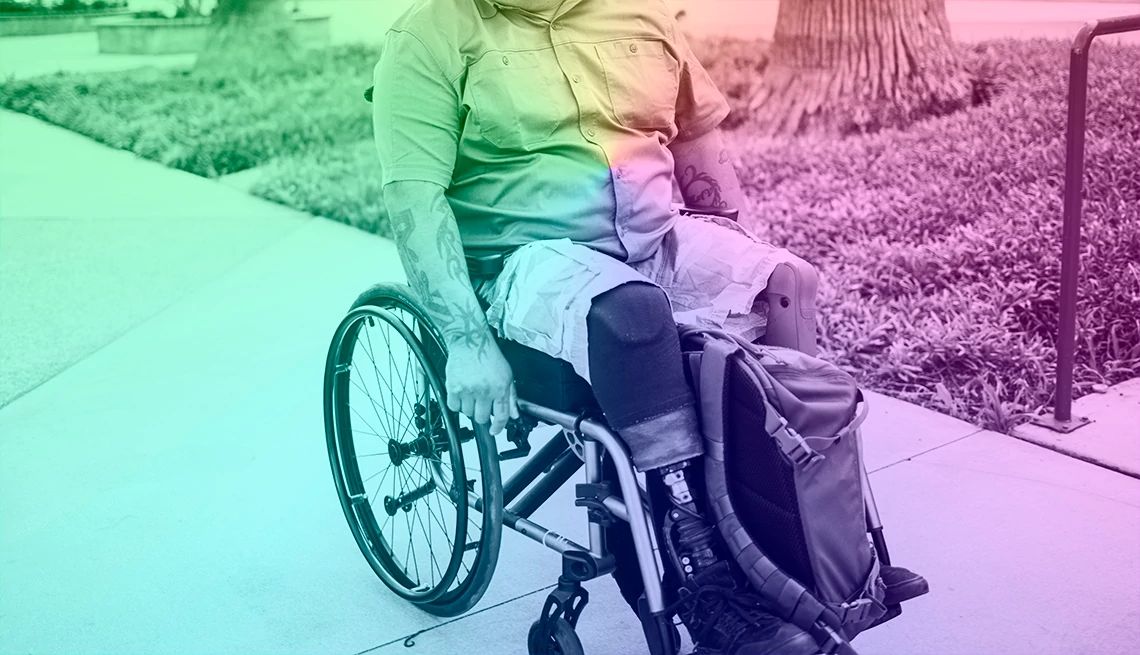AARP Hearing Center


Veterans who identify as gay, lesbian and bisexual show poorer health conditions compared to their heterosexual peers, and transgender veterans showed even worse health outcomes, according to a new study from Rand, a nonpartisan, nonprofit research organization.
States with LGBTQ+-friendly policies had residents with better overall health, particularly due to easier health care access, the study concluded. To address these disparities, Rand recommended increasing awareness of Department of Veterans Affairs benefits, ironing out the process to upgrade less-than-honorable discharges under “Don’t Ask, Don’t Tell,” and expanding LGBTQ+-friendly services within the department.
Health disparities among older LGBTQ+ veterans
The report’s data included heterosexual, bisexual, lesbian, gay and other identities, with the most respondents being 55 or older. Since the ages of respondents can vary by sex, sexual orientation and gender identity, the report used “age-adjusted results” to ensure fair comparisons across different groups.
Among the findings:
- LGBTQ+ veterans reported more health problems than straight veterans.
- LGBTQ+ veterans were more likely to report being unable to afford medical care.
- Lesbian and gay women veterans were significantly more likely to smoke than their straight counterparts.
- Male and female sexual minority veterans were more likely to rate their mental health as “not good” for more than two weeks in the past month and elevated odds of reporting a lifetime history of depression, compared to their heterosexual peers.
- All LGBTQ+ veterans were more likely to have diabetes than straight veterans, with transgender veterans more likely to report a lifetime diabetes diagnosis than cisgender veterans.






























































More From AARP
Stonewall Moments: Honoring Icons in LGBTQ+ Activism
Meet six activists AARP is recognizing for Pride MonthVA: Free Copays for Veterans’ Mental Health Visits
Covers first three outpatient visits per year8 Major Health Risks for People 50 and Older
A look at the top killers — and how to dodge them
Black Veterans Less Likely to Be Approved for VA Disability Claims
Veterans Affairs secretary vows to address the gap found in a new GAO reportRecommended for You